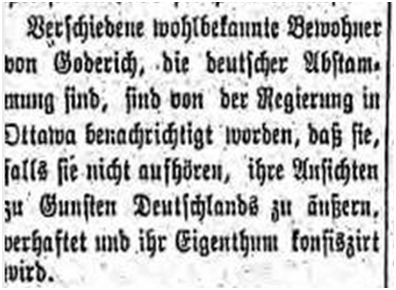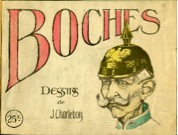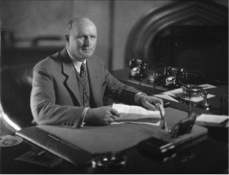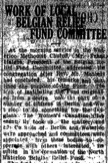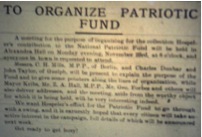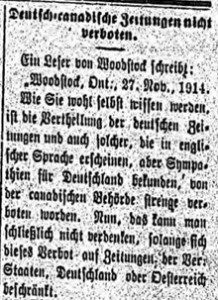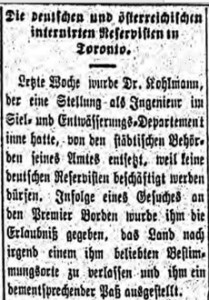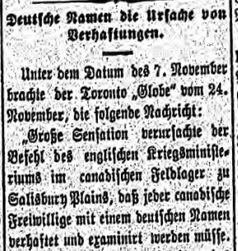As the war proceeded, suspicion towards German-Canadians grew, and the Berliner Journal reported on several incidents. For example, several Canadian citizens of German origin had been notified by the government to stop expressing their affection for Germany, otherwise they would be imprisoned and their belongings would be confiscated.
Another incident illustrated that the German community was also suspicious. A farm not far from Waterloo had erected a lookout tower. Several citizens of German origin thought they were being observed and suspected the tower was being used by spies. They told the government in Ottawa which sent an officer to investigate. He was able to calm the community down, explaining that the tower had simply been built for the purpose of land surveying.
(“Verschiedene wohlbekannte Bewohner” Berliner Journal, 4 November 1914; “Die Spionenfurcht” Berliner Journal, 11 November 1914)
